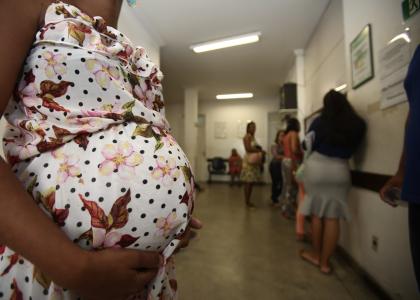Longitudinal Cohort
Remote Patient Monitoring of Chronic Disease in Community Health Centers (REDUCE)

The goal of this study is to evaluate the biomedical effects of these RPM interventions, and to gain insights into barriers and facilitators to implementation and adoption of the programs. Our results will inform efforts to ensure that patients in community health centers can benefit from digital RPM interventions and will lay the foundation for large-scale implementation of such interventions.
Tracing the Health Consequences of Family Support during the COVID-19 Pandemic

This project fills this gap in the research creating a multidimensional contextual database linked to the Health and Retirement Study (HRS) and the Panel Study of Income Dynamics (PSID) to examine the effects of the pandemic across generations of American families. The HRS and PSID have collected data on the health and well-being of individuals and their family members for decades.
Mitigating Effects of Telehealth Uptake on Disparities in Maternal Care Access, Quality, Outcomes, and Expenditures During the COVID-19 Pandemic

Telehealth represents a promising opportunity to reducing disparities in maternal health access, quality, and outcomes, given its substantial range of opportunities.
The Longitudinal Impact of the COVID-19 Pandemic and Related Multi-Level Mitigation and Contextual Factors on Health and Socioeconomic Outcomes of Individuals and Families From a Vulnerable Population

A “shovel ready” project leveraging the existing longitudinal data collected in the Fragile Families and Childhood Wellbeing Study (FFCWS), the longest running population-based US birth cohort, collected before and throughout the pandemic linked with multilevel COVID-19 related health, social and economic measures, and prospective COVID-19 impact assessments to examine these issues.
Transdisciplinary Research, Equity and Engagement Center for Advancing Behavioral Health

This project will develop an innovative Transdisciplinary Research, Equity and Engagement Center for Advancing Behavioral Health (TREE Center) that will expand on the knowledge, research capacities and cross-sectoral collaborations established by the former NM CARES Health Disparities Center.
Cognitive Control in Children of SUD Parents: A Longitudinal Multimodal MRI Study

Therefore, this Stress and COVID-19 (S&C) Study is designed to understand how COVID-19 is affecting substance use (SU) and mental health (MH) across different racial/ethnic communities.
Optimizing Access, Engagement and Assessment to Elucidate Prenatal Influences on Neurodevelopment: The Brains Begin Before Birth (B4) Midwest Consortium

This study enrolls pregnant and postpartum women into a multi-wave study to assess medical, economic, psychosocial and substance use risk across pregnancy and the perinatal period, studying associations of these factors to infant neurobehavioral development during the first year of life.
Establishing the Science Behind Alzheimer's Recruitment Registries: Opportunities for Increasing Diversity and Accelerating Enrollment Into Trials

This project will examine how information sources on COVID-19 and the larger context of the pandemic influence older adults’ perceptions of scientific research and AD, adherence to recommended COVID-19 prevention behaviors, and whether these perceptions vary by racial/ethnic group.
Planning for the HEALthy Early Development Study

This project will build on an existing national pregnancy cohort study of women with a wide range of underlying health conditions to address COVID-19 symptoms, testing and antibody status, as well as the behaviors of participants during the pandemic.
Testing of a Patient-Centered e-Health Implementation Model in Addiction Treatment

This project will enhance the ACHESS smartphone app with new COVID-19 related features and then examine how patients use ACHESS features, how organizations refer patients to the ACHESS, how they interact with patients in ACHESS, and the overall impact of the ACHESS features.